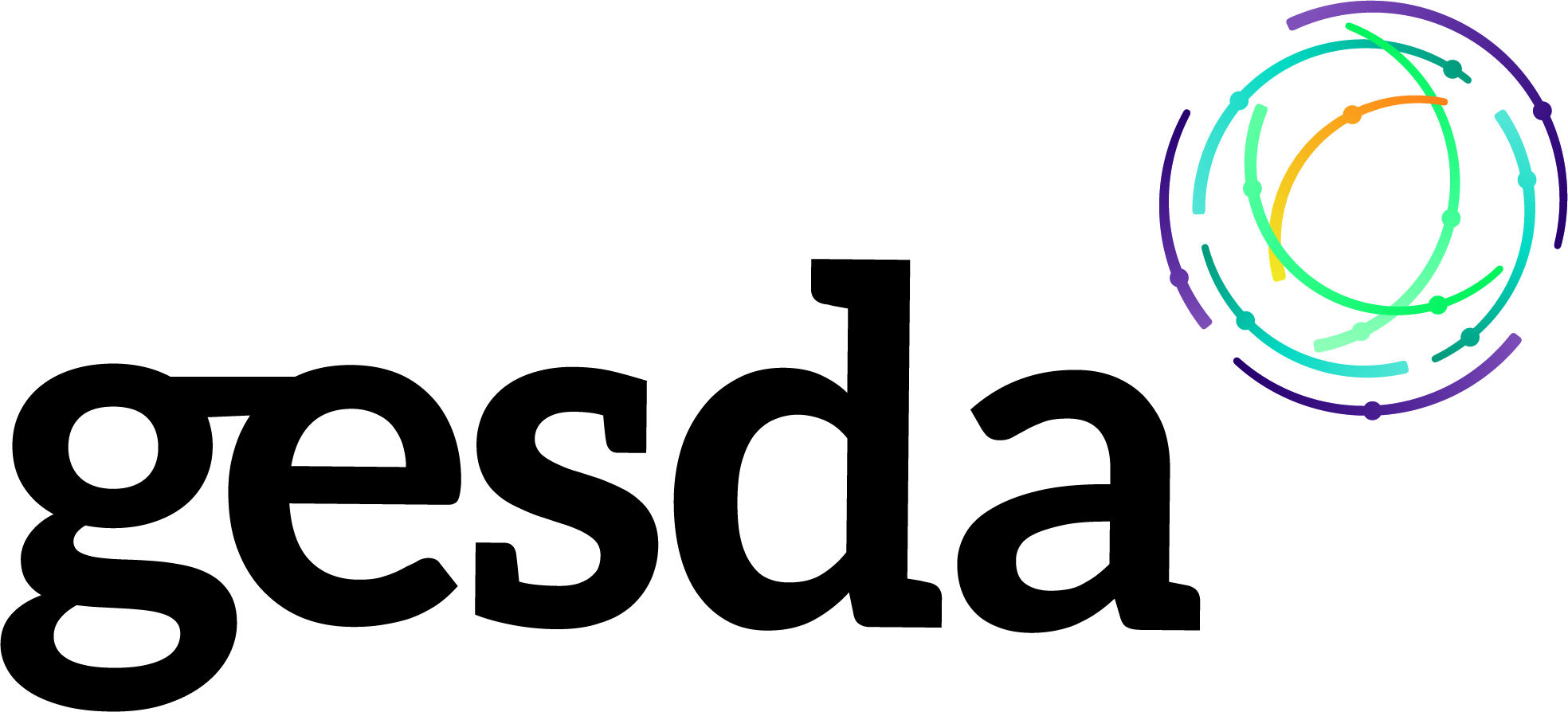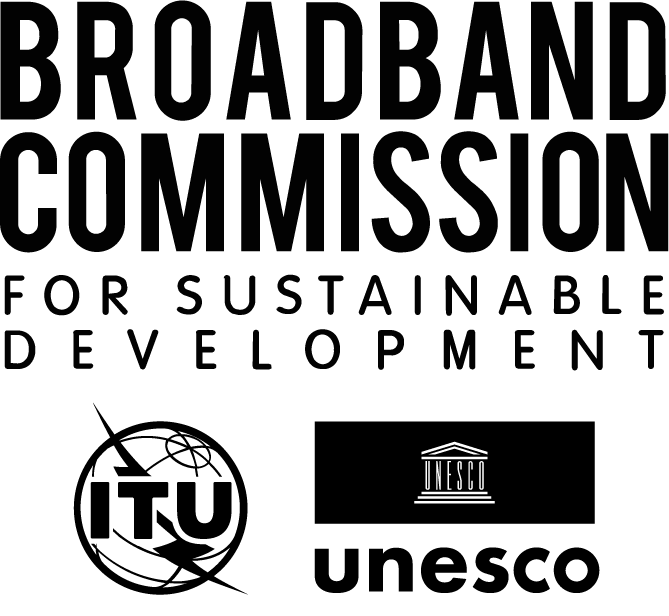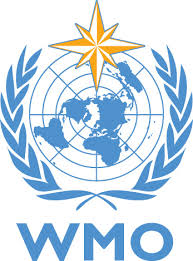Acronym: GESDA
Established: 2013
Address: c/o Fondation Campus Biotech Geneva, Chemin des Mines 9, 1202 Geneva, Switzerland
Website:
https://gesda.global/
Stakeholder group: NGOs and associations
GESDA was established to explore how future science breakthroughs can most efficiently be translated into and used as tools for the benefit of humanity. GESDA interlinks the digital revolution with other disruptive fields of science and technology, and with the diplomatic world.
GESDA’s work is guided by three fundamental questions:
- Who are we, as humans? What does it mean to be human in the era of robots, gene editing, and augmented reality?
- How are we all going to live together? How can technologies reduce inequality and foster inclusive development?
- How can we ensure the well-being of humankind and the sustainable future of our planet? How can we supply the world’s population with the necessary food and energy and regenerate our planet?
GESDA brings together an outstanding community of academic, diplomacy, and impact leaders to reflect and act on how to use the future to build the present. Its work is structured around three flagship instruments:
- GESDA Science Breakthrough Radar®
This digital platform – updated continuously and released in paper copy on a yearly basis – maps impactful emerging topics currently researched in science laboratories across the world and anticipated breakthroughs at 5, 10, and 25 years. Curated by the academic community, it provides descriptions of over 300 breakthrough predictions relevant to the global community.
Geneva Science and Diplomacy Anticipation Summit accelerates the science diplomacy nexus. Bringing science to the table of multilateralism, it engages diplomacy leaders to examine the impact of future breakthroughs on people, society, and the planet, as well as their implications for future global governance and geopolitics.
GESDA’s instrument to co-construct science diplomacy solutions with relevant transdisciplinary and cross-community task forces. In 2022, GESDA has eight solutions pathways and four initiatives in the making. These propositions are communicated at the Geneva Science and Diplomacy Anticipation Summit.
GESDA structures its anticipation, acceleration, and translation work across five thematic platforms addressing potential future science and technology advances, as well as their related challenges:
- Quantum revolution and advanced artificial intelligence (AI), with for instance the challenge of privacy.
- Human augmentation, with for instance the challenge of advanced gene editing or neuroenhancement.
- Eco-regeneration and geo-engineering, with for instance the challenges of synthetic biology, decarbonisation, and regenerative agriculture.
- Science and diplomacy, with for instance the challenge of future world geopolitics, including multilateral conflict modelling, forecasting, and prevention.
- Knowledge foundations with for instance the challenge of the future of work and labour, including rising inequalities and inclusive growth.
From the end of 2022 onwards, the GESDA Board of Directors will choose and fund (in partnership with other foundations) a limited number of large-scale, high-impact solutions and initiatives aiming to:
- Help the world population benefit more rapidly from the advances of science and technology as stated by Article 27 of the Universal Declaration of Human Rights (UDHR).
- Contribute to inclusive human development by reducing poverty and inequality while increasing the number of developing and emerging economies, in line with Agenda 2030.
- Leverage the role of Geneva and Switzerland as a hub of multilateralism capable of anticipating cutting-edge science and technologies, as well as translating them into effective tools for
GESDA was created as a global independent foundation and a public partnership in 2019, for an initial start-up phase of three years. The founders – the Swiss Federal Council and the Canton of Geneva with the City of Geneva-decided in March 2022 to prolong the Foundation for 10 years.
The ultimate objective remains to strengthen the contribution of Switzerland to multilateralism as the host country of the UN in Geneva.
Digital activities
Advanced computational tools, such as AI and high-performance computing, are reshaping all fields of science.
GESDA’s specificity is that it focuses on ‘science anticipation’. Its ambition is to comprehend the future digital disruptions and their implications for other fields of science, geopolitics, and mankind.
GESDA’s headquarters are located at the Campus Biotech in Geneva.
Digital policy issues
A Swiss foundation with a global reach and a private-public partnership working from Geneva, GESDA began in September 2019 to develop and promote anticipatory science and diplomacy for greater impact and multilateral effectiveness.
The GESDA Science Breakthrough Radar® is a new tool for multilateralism, informed discussions, and concerted action. It is a single point of entry to catch up with the unprecedented pace of science and technology. Providing a factual basis for eye-opening reflections on the impacts of future scientific discoveries for people, society, and the planet(s), this interactive, evolving instrument is updated once every year.
The GESDA Science Breakthrough Radar® provides a single entry point for all communities of practice interested in becoming early adopters of scientific advances, regardless of whether they are scientists, political authorities, diplomats working in embassies or in international organizations, economic actors, non-governmental organisations (NGOs),, or citizens from anywhere in the world.
The GESDA Science Breakthrough Radar® gives an overview of the emerging trends in five major fields of science and technology:
1. Advanced AI & Quantum Revolution
2. Human Augmentation
3. Eco-Regeneration and Geoengineering
4. Science & Diplomacy
5. Knowledge Foundations
It offers three complementary points of view on these five fields, with each point comprising a chapter of the Radar:
- Trends – Scientific emerging topics and possible breakthroughs at 5, 10, and 25 years as they are currently already cooking in the laboratories.
The 2023 GESDA Science Breakthrough Radar® presents 42 emerging scientific topics and 324 breakthroughs at 5, 10 and 25 years in the 5 considered fields. Its Knowledge Foundations’ portion comprises 3 lenses on philosophy, geopolitics, and science, dealing with 3 fundamental questions about the future of humanity, which are debated by 84 scholars in philosophy, social sciences, humanities, and geopolitics.
- Actions and Debates – What people all over the world already do with and think about these possible scientific breakthroughs.
Every edition of the GESDA Science Breakthrough Radar® includes an analysis of more than 10 million social media posts and 1.3 million articles in the mainstream media to take the pulse of society on what people do and say about emerging scientific topics presented in the trends chapter of the Radar.
- Opportunities – Emerging initiatives worth following and joining.
The 2023 GESDA Science Breakthrough Radar® presents the Open Quantum Institute 2023 Incubation Report, GESDA’s first Solution Ideas ready for pilot implementation as well as a summary of the Proceedings of the 2022 Geneva Science and Diplomacy Anticipation Summit organised once a year by the GESDA Foundation.
The GESDA Science Breakthrough Radar® is a collective work resulting from the collaboration of 1,542 scientists around the world who are building the Radar community within the GESDA Academic Forum chaired by Professor Michael Hengartner, a member of the GESDA Board of Directors. The briefs presented in the 2023 edition are signed off by 58 top scientists.
The total number of contributors to the Radar:
- 543 scientists from 53 countries contributed to the 2021 edition.
- 774 scientists from 70 countries contributed to the 2022 edition.
- 848 scientists from 73 countries contributed to the 2023 edition.
For three days every year in October, the GESDA Foundation gathers representatives of the communities of practice interested in discussing and using the emerging scientific trends depicted in the Radar. This Geneva Science and Diplomacy Anticipation Summit is where the new annual edition of the Radar is officially presented and released.
Scouting each year for future breakthroughs and emerging trends across scientific domains, from natural and social sciences to engineering and the humanities, is more critical than ever due to the pace at which science and technology are evolving. It’s the only way to be ready for the time when some of these breakthroughs become a reality. By projecting ourselves into the future, we aim to detect in advance the major scientific and technological advances that will change the ways we live, think, and behave.
Consequently, we give people time to prepare for these changes with the best possible transitions and empower them to develop uses of their own that can benefit everyone. As we learn from the current debates raging over this year’s rapid adoption of artificial intelligence ‒ which is changing almost every industry and starting to impact society ‒ it becomes more difficult to construct long-term solutions: the debates have begun and are creating a hurried atmosphere.
What’s new in 2023
Zoom in on the 2023 Edition
Compared to the previous editions released in 2021 and 2022, the 2023 GESDA Science Breakthrough Radar 2023® innovates with the following:
– 6 Deep Dives on current and future hot topics
– 27 Breakthroughs Briefs
– 7 Updates of existing Briefs
– 3 Briefs on emerging topics
– 9 new invited contributions that will nurture the next editions of the Radar
Deep Dives 2023
Neuro-Augmentation
Neuro-augmentation, one of the fastest-developing fields of science, involves enhancing our brains and nervous systems by using advanced technologies, including advanced AI and quantum computing.
Recent breakthroughs in neuroscience, neurotechnology, and brain-inspired computing are paving the way for new treatments for neurodegenerative diseases and the enhancement of our cognitive abilities. For many people, this field is the next big thing.
To delve into these complex topics, experts from various fields gathered at the GESDA Spring Anticipation Workshop in Villars, Switzerland They discussed the current state of neuro-augmentation science and identified its short-term, mid-term, and long-term implications and ethical concerns. These discussions notably aim to guide diplomatic interventions in this rapidly advancing field, ensuring responsible and beneficial progress for everybody.
The discussion in Villars focused on three hot topics: (1) brain hacking, (2) hybrid brain, and (3) artificial cognition (brain-inspired AI and robotics). Some examples of these advancements include brain-monitoring devices and brain-machine interfaces, which allow us to both read and write signals from our nervous system. These innovations could have wide-ranging impacts, from changes in workplace dynamics to new definitions of what it means to be human. Additionally, scientists are exploring the creation of brain organoids, interspecies chimaeras, and genetically modified primates, all of which are pushing the boundaries of our understanding of life and the human brain. Moreover, researchers are investigating the potential for applying our understanding of the human brain to the development of computing devices and robots that could someday possess a form of consciousness.
The Future of Peace and War
After presenting an introductory essay on the topic last year, the GESDA Geopolitical Lens of the Radar takes a deep dive into the challenges of peace and war.
Often resulting in violence or conflict, today’s increasing tensions between countries and power blocs are aggravated by climate change and competition in the field of digital technologies.
Anticipation informed by an understanding of science and technology is, therefore, also essential in the field of peace and war. It makes possible the creation and implementation of appropriate programmes and strategies to prevent or contain conflict and advance more promising approaches to peace.
Applying GESDA’s anticipatory methodology to mapping the future of peace and war involves plotting social and political scientists’ anticipations of the future.
Unlike the anticipation of breakthroughs or new applications in the field of technology, foresight in the fields of social and political sciences entails more fragile projections accompanied by greater uncertainty, unanticipated tipping points, and black swan events.
In a series of high-level workshops held in Geneva and New York in 2023, the three convening organisations — GESDA Foundation, the Geneva Centre for Security Policy (GCSP), and the School of International and Public Affairs (SIPA) at Columbia University — brought together experts in the field of peace and war to develop and apply a methodology to anticipate how advances in science and technology will influence the distribution of power in the next 10 to 25 years.
Breakthroughs and Opportunities of Advanced AI and Quantum Revolution
As we witness a remarkable integration of AI and advanced computing technologies into our daily lives, the 2023 edition of GESDA Science Breakthrough Radar® explores these developments, first by featuring an updated briefing on advanced AI science and introducing a new brief on unconventional computing, which highlights alternative computing technologies that are poised to outperform current state-of-the-art AI in the future.
Additionally, Radar 2023 includes two invited contributions that discuss how, on the one hand, AI is reshaping our understanding of the past and, on the other hand, how it is increasing the potential for neuromorphic computing to create robots with genuine embodied intelligence.
GESDA’s world, however, extends beyond being just a think tank; it actively seeks to transform knowledge into action. Building on the scientifically validated insights gathered in its first Radar released in 2021, GESDA invested the last two years in conceiving and designing solution ideas for effective multilateralism in partnership with its broad science and diplomacy community.
The Open Quantum Institute (OQI) has emerged as the first initiative to be incubated by GESDA. An exclusive report of the incubation phase in 2023 outlines OQI’s development journey, starting from the anticipation of quantum technologies in the scientific realm to its establishment as a validated solution concept for science diplomacy.
The report elaborates on how the OQI aims to become the premier hub for applying quantum computing to achieve the UN sustainable development goals (SDGs).
It details collaborations with partners to broaden access to quantum computers, underscores the significance of educational and training programs associated with the institute, and presents a proposal for shaping a multilateral governance structure that empowers the use of quantum computing for the SDGs.
Furthermore, the report emphasises the engagement of a supportive community of stakeholders in co-creating OQI’s unique value proposition, ensuring that quantum technologies benefit society as a whole rather than a select few.
The Human Right to Science
To mark the 2023 celebration of the 75th Anniversary of the Universal Declaration of Human Rights, the GESDA Science Lens highlights the importance of the human right to science, as mentioned in international declarations and covenants.
Article 27 of the Universal Declaration of Human Rights specifies the right for everyone to benefit from the advances of science. Other related documents emphasise that this right includes the responsibility to use scientific progress and its applications in a manner that takes into consideration both their benefits and the potential harm they could do.
In late 2022, GESDA convened a scientific workshop with the Brocher Foundation in Geneva to get an overview of the current status of the Human Right to Science, both generally and more specifically within the health sector.
The resulting report presented in the 2023 Radar involves 29 experts in international and humanitarian law discussing how integrating human rights into the scientific process can lead to collaborative, holistic, and inclusive approaches. This approach goes beyond merely mitigating risks; it encourages responsible exploration of the opportunities offered by scientific and technological progress.
The Future of People, Society, and the Planet(s)
Since 2021 in the GESDA Philosophy Lens, a group of leading philosophers has been exploring how the advancements outlined in the Radar might reshape humanity, society, and our relationship with the planet(s).
Each edition of the Radar proposes new points of view on three fundamental questions that the GESDA Foundation is addressing:
1. Who are we? What does it mean to be human in an age of robots, gene editing, and augmented reality?
2. How are we going to live together? Which deployment of technologies can help reduce inequality and foster inclusive development and well-being?
3. How can we assure humankind’s wellbeing with the sustainable health of our planet? How can we supply the world’s population with the necessary food and energy while regenerating our planet?
For example, the possible development of ‘conscious’ machines requires us to reflect on our purported uniqueness as humans, and which properties we may wish to actively preserve as the sole remit of human beings. Additionally, the group of philosophers considers how emerging digital technologies can impact fundamental aspects of society, from trust and privacy to democracy and justice. It also addresses the challenges posed by climate engineering technologies and how we perceive our control over nature in the face of environmental disruptions.
People’s Uses and Expectations Regarding Science
Through a detailed examination of global public sentiment as well as people’s stances on science, the Radar’s Pulse of Society delves into the influence of science and technology on humanity’s self-perception, social interactions, and relationship with the environment. It also aims to detect the early uses of advanced technology and underscores the importance of comprehending public approaches regarding present and future scientific developments.
To achieve this, the GESDA Foundation uses AI to analyse both mainstream media and online social platforms.
As it has done every year since its inception in 2021, GESDA’s analysis provides new insights into the extent of discussions surrounding topics mentioned in the Radar, how these topics connect with other themes both inside and outside the Radar, and what the evolving sentiment around these subjects is.
It also identifies the actions taken by citizens in response to their interests related to each topic, spotlighting noteworthy initiatives and influential figures that have emerged over the past year. Importantly, this year’s analysis also includes a comparison of how public opinions, sentiment, and actions have evolved since the initial release of the Radar in 2021.
Future of meetings
Geneva Science and Diplomacy Anticipation Summit (annual event in October) – all sessions accessible online.
Science and Diplomacy Week (annual event in May) – most sessions accessible online.
GESDA Science Breakthrough Radar(provides a platform for online contributions).
GESDA regularly contributes to relevant global meetings across the world.
Social media channels
Facebook @GESDAglobal
LinkedIn @gesda-global
X @GESDAglobal











Social media channels
Facebook @World Meteorological Organization
Flicker @World Meteorological Organization
Instagram @wmo_omm
LinkedIn @world-meteorological-organization
X @WMO
YouTube @worldmetorg